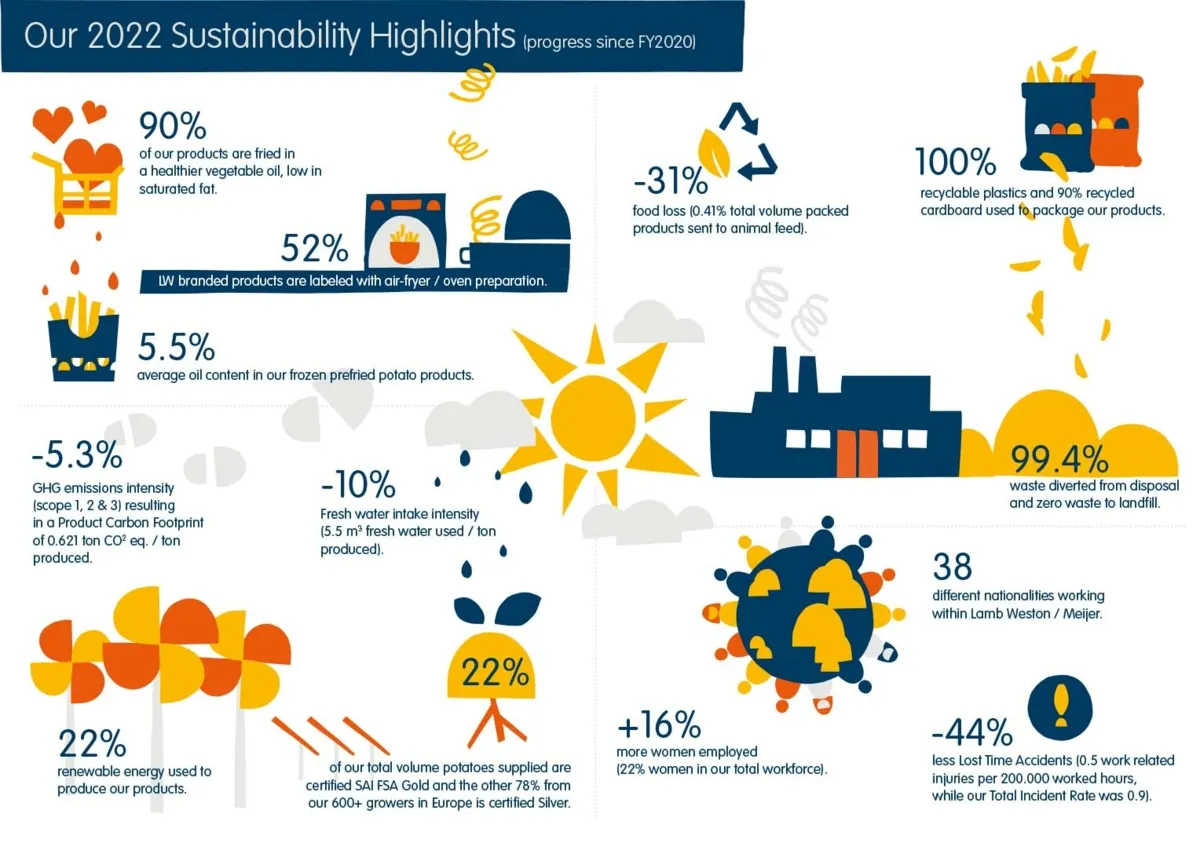Sustainable Potato Enjoyment: Lamb Weston progress report on 2030 Sustainability Agenda Tuesday 17 January 2023
Today Lamb Weston released its Sustainability Report 2021-2022, based on its 2030 Sustainability Agenda and the UN Sustainable Development Goals. Working with its customers, growers, business partners and employees, the company made good progress on the three key challenges through which it believes it can make the greatest contribution, as it strives to achieve its sustainability agenda and create positive impact from potato to plate.
Since the publication of its last report in 2021, Lamb Weston has continued to focus on its goals of generating net zero greenhouse gas emissions from direct energy use, creating zero food waste and circular production, and offering sustainable potato enjoyment, which can be consumed as part of a balanced diet.
Lamb Weston CEO Marc Schroeder: “What motivates me is that consumers globally enjoy eating our tasty potato products. My personal drive is to make them a healthier treat that fits into a balanced diet. ‘Sustainable Potato Enjoyment’ is what we believe in,” he says.
‘Sustainable Potato Enjoyment’ encapsulates Lamb Weston’s offering to consumers, and in its sixth sustainability report the company highlights progress made on the six commitments, linked to its three key challenges: Balanced Diet, Zero Waste and Climate Action. For more details see the report.
- Aligned with its commitments on Balanced Diet, the company is launching a range of new products that contain less oil and/or are suitable for preparation in a healthier way and promotes skin-on products and thicker cuts, containing less oil and slightly more fibre.
- Regarding Zero Waste, Lamb Weston continues to drive sustainable consumption and production and reduced its food loss by nearly one third. All its packaging is 100% recyclable, with cartons made from 90% recycled cardboard.
- On Climate Action, there is more work to be done on the energy transition towards net zero, even though the company has advanced in several important areas. It reduced its product carbon footprint by 5.3% and fresh water use intensity by 10% over the last two years, bringing the company on track to achieve its 2030 goals.
Looking ahead: Sustainability remains a fundamental aspect of the company’s decision-making process
One of Lamb Weston’s focus areas is how to continue to make its potato products more sustainable. The company will continue to invest in its plants to reduce energy and water use and improve efficiency, such as its two most recent investments in the Netherlands: a state-of-the-art Innovation Center in Bergen op Zoom and a new production facility at its site in Kruiningen.
Sustainable Highlights 2022
